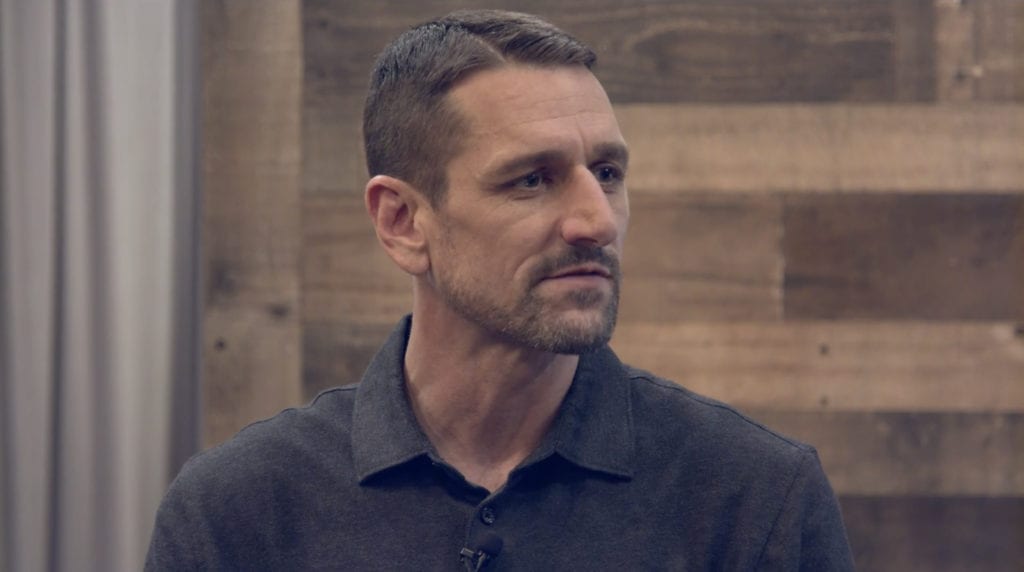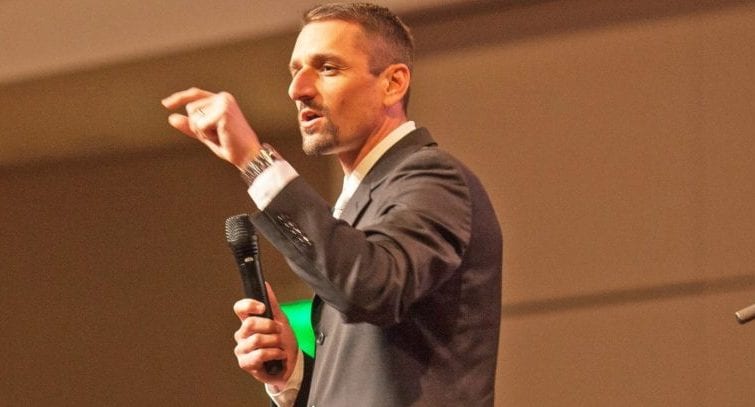 By Jeremy Stalnecker –
By Jeremy Stalnecker –
Executive Director of MOF
One of the greatest privileges of my life was serving with First Battalion Fifth Marines during Operation Iraqi Freedom. Becoming a Marine and serving in combat where dreams that I had held since I was young and the experience did not disappoint. I watched young men do the impossible and with the honor and courage that has defined generations of Americas fighting men.
Shortly after returning I left the Marines and moved on with life. But as the wars dragged on, I started to hear about this thing called Post Traumatic Stress Disorder (PTSD). When I returned from Iraq I had a period where I struggled to adjust and get my head around some of the things that I had experienced. I still struggle with anger and other “left-over” issues, but I believe that I am a fairly well-adjusted human being. So, when I began to hear about those who were diagnosed with PTSD, I had a hard time believing it was real. How could the men that I had served with struggle with the things being described? Ten years after leaving the Marines I met up with a few guys from my platoon and for the first time heard stories of suicide, broken homes and broken lives. I learned about guys who were once warriors that now struggled to keep jobs. While I still don’t have everything figured out, that time made two things clear: I needed to re-engage and serve those who have served, and I needed to know more about PTSD.
Post-Traumatic Stress Disorder
The truth about PTSD is extremely complicated since it is not diagnosed by testing changes in physiology but by pairing up symptoms with a traumatic incident. Most PTSD is treated with medication as a mental or emotional disorder with the goal of making it possible to “get by”. One thing we do know is that it is very common. The National Center for PTSD provides some important statistics:
- 70% of adults in the U.S. have experienced some type of traumatic event at least once in their lives.
- About 7 or 8 out of every 100 people (or 7-8% of the population) will have PTSD at some point in their lives.
- Women are nearly twice as likely to have PTSD as men at some point in their lives.
- The prevalence of current PTSD among veterans of Iraq and Afghanistan is 13.8%.
The problem in all of this, as we wait for a breakthrough in treatment, is that those who struggle resign themselves to a life where the goal is making it from one day to the next with little hope for the person who has been diagnosed of ever getting “better”. A moment in time, a traumatic and abnormal one to be sure, now becomes the lens through which every action, thought, and relationship is viewed.
A medical community still working to get a grasp on Post-traumatic stress has declared that those who have it are “disordered”. The implication is that the sufferer is destined to struggle for the rest of their lives. Is it really a mystery then, that the suicide, divorce and substance abuse rates among those who have been diagnosed is so high?
Traumatic events are events outside of the normal course of life. We could say that they are abnormal. In his book “Man’s Search for Meaning”, Holocaust survivor Viktor Frankl made this statement: “An abnormal reaction to an abnormal situation is normal behavior.” He went on to explain that to not struggle with serious life trauma would actually be abnormal. This is not to say that there are not serious difficulties associated with trauma, only that the sufferer is not broken. The trauma itself is the problem, not our natural response to it.
As Frankl reflected on his time in concentration camps, he made an important discovery. “Everything can be taken from a man but one thing:” he said, “the last of the human freedoms—to choose one’s attitude in any given set of circumstances, to choose one’s own way.” He understood his life was defined by the decisions he made every day, even in captivity. When talking about how people often say that their responses to trauma are out of their control, he said simply: “Between stimulus and response there is a space. In that space is our power to choose our response. In our response lies our growth and our freedom.”
There is Hope
I know that some, in and out of the veteran community, will not allow themselves to move beyond the title of “disordered” and continue to find their identity in what has happened to them. I also know that the very real issues presented by Post-traumatic stress may never go away. With this in mind though, people and events can steal moments from your life but they do not have the power to steal your future unless you give it to them!
- You may have been hurt, but you have not been broken.
- You may have to deal with your past, but you do not have to let it define your future.
- You do not have to be a prisoner to broken relationships, substance abuse or self-destructive thoughts.
It’s Time to Move Forward
There was a time in my life when all I wanted to do was go into battle with the finest warriors on the planet. I did. It was all I had hoped it would be. I cannot accept that those same warriors, and many like them, have now lost the ability to get up and fight. We all get knocked down. Some harder than others. It is often traumatic and has life-long consequences. But getting knocked down does not mean that you must stay down. Instead of cursing the world as it passes you by, get up off the ground and use the days ahead to build a life of significance. You are not broken. You are not disordered. It’s time to move forward.





